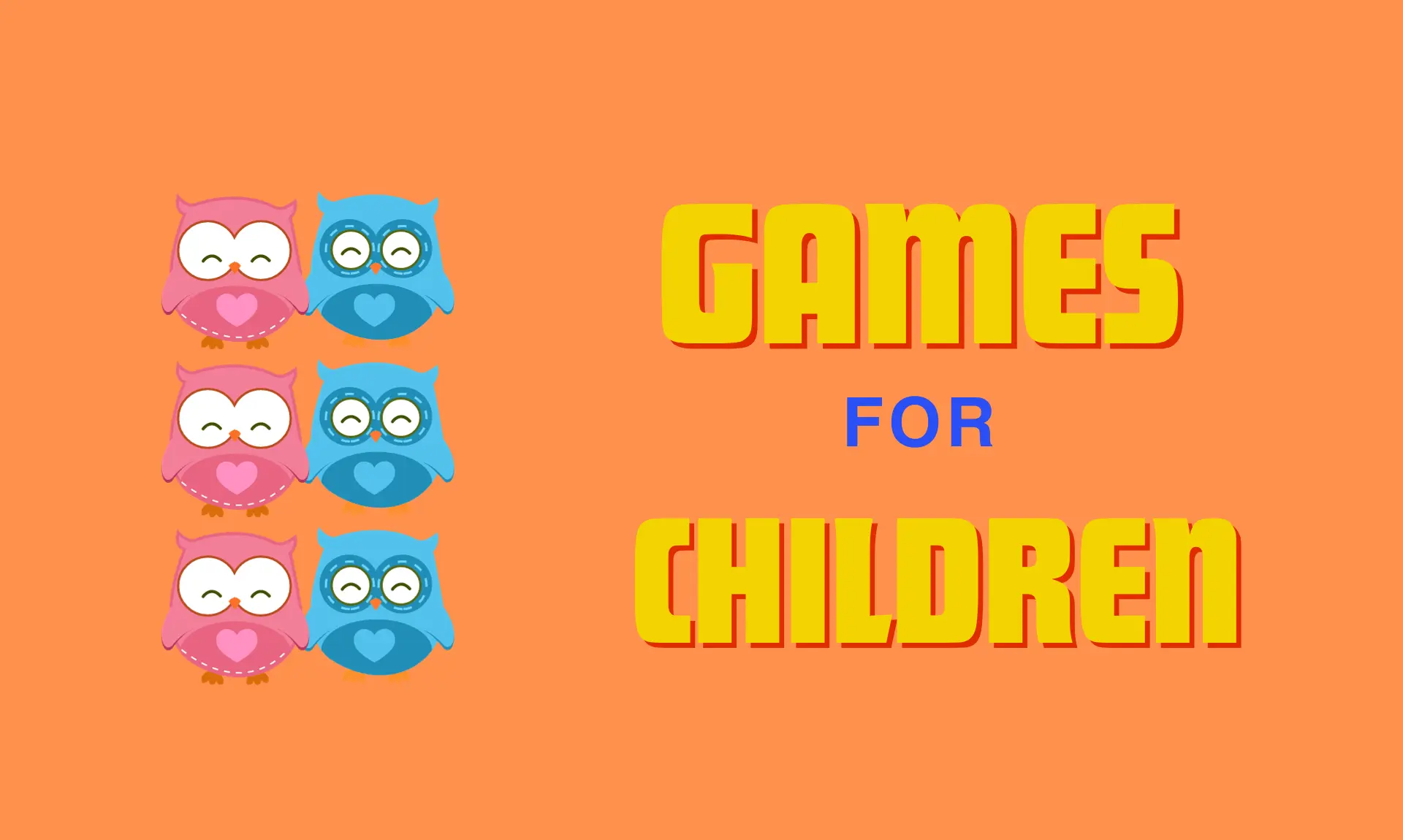Anger in pre-teens and steps to deal with it.
Understanding Anger in Pre-teens: Unveiling the Tumultuous Emotions
Anger, a universally experienced emotion, often emerges as a turbulent force during pre-adolescence. Pre-teens, typically aged 9 to 12, undergo a significant phase of physical, emotional, and cognitive development. As their bodies undergo rapid changes, hormonal fluctuations occur, impacting their emotional landscape. The transition from childhood to adolescence brings about a concoction of emotions, and anger stands at the forefront, signaling a struggle for independence, identity, and control over their lives.
Understanding and addressing anger in pre-teens is crucial for several reasons. Firstly, it’s a common emotion during this developmental stage, and pre-teens need guidance to navigate and express it appropriately. Secondly, unmanaged anger can have lasting detrimental effects on their mental and emotional well-being, academic performance, and relationships. By comprehending the triggers and effectively managing anger, we can equip pre-teens with invaluable tools to cope with life’s challenges and foster healthy emotional growth.
The Importance of Addressing Anger in Pre-teens: A Critical Responsibility
Anger, when left unaddressed, can manifest in various destructive ways in pre-teens. These manifestations include aggressive behavior, isolation, poor academic performance, and strained relationships with peers, parents, and teachers. Acknowledging and addressing anger is a critical responsibility for parents, educators, and society at large. It ensures that pre-teens receive the necessary support and guidance to channel their emotions constructively, reducing the potential for long-term emotional and behavioral issues.
Addressing anger in pre-teens is not just about managing their immediate reactions. It’s an investment in their future, setting the foundation for healthy emotional regulation throughout their lives. Learning to manage anger effectively equips pre-teens with essential life skills, including conflict resolution, communication, and empathy. By nurturing a safe environment where anger is acknowledged, understood, and managed constructively, we pave the way for a generation of emotionally intelligent individuals capable of facing the complexities of adulthood with resilience and composure.
Understanding Anger in Pre-teens: Unveiling the Tumultuous Emotions
Anger, an intense emotional response often associated with displeasure and frustration, is a complex emotion that every individual experiences at different stages of life. Pre-teens, generally aged between 9 and 12 years old, navigate a distinctive period of life known as pre-adolescence. This juncture is marked by an array of emotional, physical, and psychological transformations. Understanding anger within this age group requires delving into the fundamental aspects of the emotion and appreciating its normalcy in the pre-adolescent stage.
Definition of Anger and its Normalcy during Pre-adolescence
Anger, in its simplest form, can be defined as a powerful emotional response typically triggered by perceived threats, conflicts, or frustrations. During pre-adolescence, experiencing anger is a natural and common occurrence. As pre-teens strive for autonomy and independence, they encounter new challenges and responsibilities, leading to heightened emotions. This emotional intensity is a part of the process of growing up and learning to manage feelings in a socially acceptable manner.
Hormonal changes and the onset of puberty contribute significantly to the surge in anger during pre-adolescence. The body undergoes a surge in hormones, including testosterone and estrogen, which influence brain chemistry and emotional responses. These biological changes can make pre-teens more prone to experiencing intense emotions like anger, and often, they may struggle to regulate and express these feelings appropriately. Understanding the hormonal aspect of anger is vital in comprehending why pre-teens might exhibit anger more frequently and intensely.
Mention of Hormonal Changes and Emotional Development
Hormonal changes, a hallmark of pre-adolescence, significantly impact emotional development. The surge in hormones affects the brain’s prefrontal cortex, which is responsible for impulse control, decision-making, and emotional regulation. As this part of the brain is still maturing during pre-adolescence, pre-teens often find it challenging to manage their emotions effectively, including anger.
Moreover, emotional development during pre-adolescence involves learning how to identify, understand, and express emotions. Anger, being a powerful and prevalent emotion during this phase, provides pre-teens with an opportunity to learn about their feelings and develop appropriate coping strategies. Through guidance and education, pre-teens can learn to channel their anger constructively, enabling them to navigate their emotions and interactions with increased awareness and resilience.
Understanding anger in pre-teens necessitates a holistic approach that acknowledges the biological, psychological, and emotional aspects of this essential emotion. By recognizing the normalcy of anger during pre-adolescence and considering hormonal changes and emotional development, we can provide pre-teens with the support and tools needed to manage their anger constructively and develop essential emotional intelligence skills.
Theories on Anger in Pre-teens: Exploring the Psychological Landscape
Understanding how anger manifests in pre-teens is essential for effective guidance and support during their transitional phase. Various psychological theories shed light on the underlying processes influencing anger expression during pre-adolescence. Two prominent theories, Erikson’s Psychosocial Theory and Piaget’s Cognitive Development Theory, offer valuable insights into the development of anger in pre-teens and the role cognitive abilities play in its expression.
Erikson’s Psychosocial Theory: Discussing Stages of Development and How Anger Manifests
Erik Erikson’s Psychosocial Theory emphasizes the significance of social and emotional development throughout an individual’s life. According to Erikson, pre-adolescence falls within the stage of “Industry vs. Inferiority,” typically spanning from age 6 to puberty. During this phase, pre-teens are driven to develop a sense of competence and mastery over skills. However, if they face constant criticism or experience failure, feelings of inferiority can arise, leading to frustration and anger.
Anger in pre-teens, as per Erikson’s theory, is a result of the conflict between their desire for autonomy and competence versus the fear of failure. Unresolved anger during this stage can impact their self-esteem and overall emotional well-being. Acknowledging these struggles and fostering an environment where pre-teens can express themselves without judgment is essential in helping them navigate this crucial developmental phase.
Piaget’s Cognitive Development Theory: Linking Cognitive Abilities with Anger Expression
Jean Piaget’s Cognitive Development Theory highlights the connection between cognitive growth and emotional development. According to Piaget, children progress through different stages of cognitive development, and their ability to regulate emotions, including anger, aligns with their cognitive capabilities.
In pre-adolescence, children transition from the Concrete Operational Stage to the Formal Operational Stage. This advancement allows them to think abstractly, reason logically, and understand others’ perspectives more effectively. Consequently, pre-teens start perceiving situations that evoke anger in a more nuanced manner, and they can express and manage their anger in a more socially appropriate manner compared to earlier stages.
Understanding Piaget’s theory aids in tailoring strategies for anger management that align with a pre-teen’s cognitive abilities. It emphasizes the importance of encouraging critical thinking and perspective-taking to facilitate healthier anger expression and resolution.
These theories offer valuable frameworks to comprehend the genesis and expression of anger in pre-teens. By leveraging Erikson’s insights into developmental stages and Piaget’s understanding of cognitive growth, caregivers, educators, and mental health professionals can employ targeted approaches to guide pre-teens in managing and understanding their anger constructively.
Signs of Anger in Pre-teens: Recognizing the Telltale Signals
Anger is a natural emotion experienced by pre-teens, often surfacing as a response to various triggers they encounter in their lives. Identifying signs of anger in pre-teens is essential for parents, educators, and caregivers to provide appropriate guidance and support. Both behavioral indicators and physical/emotional signs can offer crucial insights into a pre-teen’s emotional state, helping in timely intervention and teaching effective anger management techniques.
Behavioral Indicators of Anger
Recognizing behavioral signs of anger in pre-teens is key to understanding their emotional state and addressing any underlying concerns. Common behavioral indicators may include:
- Aggressive Behavior: Pre-teens might display aggression such as hitting, pushing, or verbal aggression towards peers, siblings, or even adults when angry.
- Isolation and Withdrawal: Some pre-teens tend to isolate themselves, seeking space and solitude when angry. They may retreat to their room or avoid social interactions.
- Defiance and Opposition: Anger can manifest as defiance or rebellion, wherein pre-teens may resist authority, rules, or instructions as a way of expressing their frustration.
- Property Damage: Exhibiting anger by intentionally breaking or damaging objects can be a sign of underlying emotional distress in pre-teens.
Physical and Emotional Signs of Anger
Understanding the physical and emotional signs of anger is crucial for early detection and appropriate intervention. Pre-teens may experience a combination of the following signs:
- Facial Expressions: Frowning, scowling, or a flushed face are common physical signs that a pre-teen is experiencing anger.
- Rapid Breathing and Heart Rate: Anger often triggers an increased heart rate and rapid breathing as the body responds to heightened emotions.
- Verbal Outbursts: Shouting, yelling, or expressing anger through loud and aggressive language is a noticeable emotional sign of anger.
- Clenched Fists or Jaw: Physically, pre-teens might clench their fists, jaw, or other muscles as a way to cope with their anger.
Understanding these behavioral, physical, and emotional signs of anger equips parents, teachers, and caregivers with the knowledge to intervene and provide appropriate coping mechanisms. Teaching pre-teens healthy ways to express and manage their anger is essential for their emotional development and overall well-being.
Common Triggers for Anger in Pre-teens: Understanding the Catalysts
Anger is a natural emotional response that pre-teens, typically aged 9 to 12, experience as they navigate the complexities of pre-adolescence. It’s crucial to understand the common triggers that provoke anger in pre-teens, enabling parents, educators, and caregivers to provide appropriate support and guidance during this crucial developmental phase.
Academic Pressures
Academic pressures can significantly impact pre-teens, causing frustration and anger. As they transition from elementary to middle school, the workload and expectations often increase. Struggles with understanding complex subjects, fear of failure, or pressure to perform well in exams can mount stress and irritability, leading to outbursts of anger.
Social Challenges
Pre-adolescence marks a period of intense social growth, and navigating these changes can be overwhelming for pre-teens. Social challenges like peer conflicts, bullying, peer pressure, or feelings of inadequacy can trigger anger. Pre-teens might experience frustration when trying to fit in or when their social expectations are not met, leading to anger as a coping mechanism.
Family Dynamics
Family dynamics significantly influence a pre-teen’s emotional well-being. Conflict, lack of communication, or instability within the family can provoke anger. Pre-teens may feel neglected, misunderstood, or caught in the middle of family disputes, causing them to express their anger as a response to the tension they experience at home.
Hormonal Changes
Hormonal changes during pre-adolescence play a fundamental role in emotional regulation. Fluctuations in hormones, particularly testosterone and estrogen, can intensify emotional responses, including anger. The surge in hormones can make pre-teens more prone to mood swings, irritability, and frustration, which are often expressed as anger.
Environmental Factors
Environmental factors encompass various influences in a pre-teen’s surroundings, such as their school, neighborhood, or community. Factors like exposure to violence, unsafe environments, or negative peer influence can trigger anger. Pre-teens living in stressful or challenging environments might use anger as a way to cope with the external pressures they face.
Understanding these common triggers for anger in pre-teens is vital for creating a supportive environment. By identifying the catalysts and addressing them appropriately, parents, educators, and caregivers can help pre-teens develop healthier coping mechanisms, emotional intelligence, and resilience. Providing a safe and understanding space for pre-teens to communicate their concerns and frustrations is paramount in guiding them through this critical phase of development.
Impact of Uncontrolled Anger: Unveiling the Consequences
Anger, a powerful and often overwhelming emotion, can have far-reaching consequences when left uncontrolled, especially in pre-teens. It’s essential to recognize the potential impact of uncontrolled anger on various aspects of a pre-teen’s life, including mental health, relationships, and academic performance. By understanding these consequences, we can emphasize the importance of teaching pre-teens healthy ways to manage and express their anger constructively.
Effects on Mental Health
Uncontrolled anger can significantly impact a pre-teen’s mental well-being. When anger is not managed effectively, it can escalate into prolonged periods of frustration, irritability, and even aggression. Chronic anger can contribute to the development of mental health issues such as anxiety and depression, potentially leading to a downward spiral of negative emotions and thoughts. Learning to manage anger is crucial in promoting good mental health and fostering emotional stability in pre-teens.
Effects on Relationships
Anger that is not appropriately expressed or managed can strain relationships, both within the family and outside. Pre-teens experiencing uncontrolled anger may find it challenging to communicate effectively, resulting in conflicts and distance from family members, friends, and peers. Long-term, this can lead to a sense of isolation and hinder the development of essential social skills, making it imperative to teach pre-teens how to channel their anger constructively to maintain healthy relationships.
Academic Consequences
The consequences of uncontrolled anger often extend to the academic sphere. Pre-teens grappling with anger issues might struggle to concentrate, engage, or participate in their academic endeavors effectively. Anger can impair decision-making and problem-solving abilities, ultimately hindering their academic performance. Over time, this may result in a decline in grades, missed opportunities, or even disciplinary actions, emphasizing the need to address and manage anger to ensure academic success.
Understanding the potential consequences of uncontrolled anger underscores the importance of early intervention and proactive strategies to help pre-teens manage their anger effectively. Teaching pre-teens healthy coping mechanisms, communication skills, and providing a supportive environment to express their feelings can mitigate the adverse effects of anger. By addressing anger and its implications comprehensively, we empower pre-teens to navigate the complexities of their emotions, relationships, and academic pursuits in a constructive and fulfilling manner.
Ways to Help Pre-teens Deal with Anger: Guiding Them Toward Calmness
Navigating the storm of anger during pre-adolescence can be challenging for both pre-teens and their parents or caregivers. However, it’s vital to help pre-teens learn how to manage and channel their anger constructively. By teaching them effective strategies and creating a supportive environment, we can empower pre-teens to deal with their anger in healthy ways.
Teaching Emotional Regulation Techniques
Emotional regulation is a fundamental skill that empowers pre-teens to manage their anger in a healthy manner. Teaching pre-teens techniques like deep breathing, mindfulness, and progressive muscle relaxation can provide them with immediate tools to regulate their emotional responses. Guiding them to recognize and label their emotions enables a deeper understanding of anger and promotes healthier coping mechanisms.
Encouraging Open Communication
Open communication is a cornerstone in helping pre-teens deal with anger. Create a safe and judgment-free space where pre-teens feel comfortable discussing their feelings and frustrations. Encourage them to express their anger, fears, and concerns openly, allowing you to understand the root causes. Listen actively, validate their emotions, and offer guidance without criticism. Healthy communication can significantly reduce anger by making pre-teens feel heard and understood.
Promoting Physical Activities and Hobbies
Physical activities and hobbies provide an excellent outlet for pre-teens to release pent-up anger and stress. Engaging in sports, exercise, or creative activities like painting or writing allows pre-teens to channel their energy positively. Physical movement also helps in reducing the physical symptoms of anger, promoting a sense of relaxation and well-being. Encourage pre-teens to explore various activities and find what resonates with them.
Providing a Safe and Supportive Environment
Creating a safe and supportive environment is paramount in helping pre-teens manage their anger effectively. Ensure that they feel safe expressing their anger without fear of punishment or judgment. Offer guidance on appropriate ways to express anger and resolve conflicts. Establishing clear boundaries, routines, and consistent discipline helps in providing stability and security, minimizing triggers for anger.
By implementing these strategies, we can equip pre-teens with the tools needed to navigate their anger and develop essential emotional intelligence. It’s crucial to remember that every pre-teen is unique, so tailoring these approaches to suit their individual needs and preferences is essential. Through patient guidance, understanding, and a nurturing environment, we can guide pre-teens toward healthier anger management strategies and overall emotional well-being.
Effective Communication Strategies: Nurturing Understanding and Connection
Effective communication is the cornerstone of any healthy relationship, especially when it comes to dealing with pre-teens and their emotions. Establishing open and empathetic communication channels can make a significant difference in how pre-teens express and manage their anger. Let’s explore some key strategies that promote effective communication and understanding in pre-teens.
Active Listening
Active listening involves not just hearing the words spoken, but understanding the emotions, concerns, and intentions behind them. When a pre-teen communicates their feelings of anger, it’s essential to give them your full attention. Maintain eye contact, avoid distractions, and refrain from interrupting. Reflect back what they’ve expressed to show that you genuinely comprehend their emotions. This validates their feelings and fosters a sense of being heard and understood.
Validation of Emotions
Pre-teens need assurance that their emotions are valid and accepted, even if they’re expressing anger. It’s crucial to acknowledge and validate their feelings without judgment. Phrases like “I can see why you’d feel that way” or “It’s okay to be angry, and I’m here to listen” reassure them that their emotions are natural and understood. Validating their emotions helps in building trust and a sense of safety in expressing themselves.
Using “I” Statements
When discussing the effects of anger or addressing a situation, using “I” statements can be remarkably effective. For example, instead of saying “You shouldn’t have done that,” you can say “I felt hurt when that happened.” “I” statements help avoid blame and accusations, shifting the focus to personal feelings and perceptions. This approach encourages pre-teens to consider the impact of their actions on others and promotes a more constructive dialogue.
Encouraging Expression Without Judgment
Creating an environment where pre-teens feel safe expressing themselves without fear of criticism is crucial. Avoid jumping to conclusions or offering immediate solutions. Instead, encourage them to share their feelings and thoughts openly. When they do express themselves, refrain from criticizing or belittling their emotions or opinions. By creating a judgment-free zone, you foster a strong foundation of trust and understanding.
Utilizing these effective communication strategies not only helps pre-teens manage their anger but also establishes a solid platform for building a healthy parent-child relationship. Remember, effective communication takes time and practice. As you consistently implement these strategies, you’ll notice improved communication, a deeper bond, and enhanced emotional well-being for both you and your pre-teen.
Parental Involvement and Support: Guiding Pre-teens Through Anger
Parental involvement and support play a critical role in helping pre-teens navigate their emotions, particularly the challenges associated with anger. Parents are not only the primary caregivers but also the emotional anchors for pre-teens during this crucial phase of their development. Let’s explore strategies for parents to assist their pre-teens in managing anger effectively and how this involvement contributes to a healthy parent-child relationship.
Strategies for Parents to Help Pre-teens Manage Anger
- Open Communication and Active Listening: Encourage an open line of communication where pre-teens feel comfortable expressing their anger. Practice active listening by giving them undivided attention, acknowledging their feelings, and reflecting them back to show understanding. For instance, when they’re upset about a situation at school, you might say, “It sounds like you had a really frustrating day.”
- Teaching Anger Management Techniques: Educate pre-teens about various anger management techniques such as deep breathing, counting to ten, or taking a break. Role-play scenarios where they can practice responding to anger in a controlled and respectful manner. By providing these tools, you empower them to manage their anger constructively.
- Setting a Positive Example: Children often mirror the behavior of their parents. Demonstrate appropriate anger management by handling your own frustrations in a healthy way. If you’re upset, explain how you’re feeling and the strategies you use to calm down. This sets a positive model for pre-teens to emulate.
- Establishing Routines and Structure: Structure provides a sense of security and predictability for pre-teens. Set clear expectations and routines, including designated times for homework, play, and relaxation. Predictability can reduce stress and frustration, minimizing potential triggers for anger.
Encouraging a Healthy Parent-Child Relationship
- Quality Time and Bonding Activities: Dedicate quality time to engage in activities that your pre-teen enjoys. Whether it’s playing a game, going for a walk, or doing a craft together, these shared experiences strengthen the parent-child bond and create an environment where open communication and trust thrive.
- Expressing Unconditional Love and Acceptance: Reassure your pre-teen that your love and support are unconditional, regardless of their emotions or actions. Let them know that it’s okay to feel angry and that you’re here to help them work through those feelings without judgment.
- Praising Efforts and Progress: Acknowledge and praise your pre-teen’s efforts in managing their anger. Celebrate the progress they make, even if it’s small. Positive reinforcement boosts their confidence and motivates them to continue practicing healthy anger management.
By implementing these strategies and fostering a healthy parent-child relationship, parents can provide the necessary support and guidance for pre-teens to manage their anger effectively. A nurturing environment grounded in understanding and love empowers pre-teens to develop essential emotional intelligence and navigate the complexities of adolescence.
Professional Help: Navigating Anger with Expert Guidance
While parental support and guidance are fundamental in helping pre-teens manage their anger, sometimes professional help becomes necessary. Recognizing when and how to seek this assistance is crucial. Additionally, understanding the available therapy and counseling options for pre-teens can be a game-changer in effectively addressing anger and its underlying causes.
When and How to Seek Professional Assistance
Recognizing the signs that a pre-teen’s anger is beyond typical emotional fluctuations is the first step. If anger becomes persistent, intense, or significantly impacts their daily life, seeking professional help is advisable. Other signs may include extreme mood swings, aggression, withdrawal from social interactions, or declining academic performance.
Initiating a conversation with your pre-teen about the possibility of seeking professional help is important. Approach the topic with sensitivity and openness. Express your concern for their well-being and emphasize that professional assistance is a resource to help them manage their anger better.
Therapy and Counseling Options for Pre-teens
- Cognitive-Behavioral Therapy (CBT): CBT is a widely used therapy for pre-teens struggling with anger issues. It focuses on identifying and changing negative thought patterns and behaviors. For instance, a pre-teen who often reacts angrily to criticism might learn strategies to reinterpret feedback more constructively.
- Play Therapy: Play therapy is effective for younger pre-teens or those who may struggle to express their emotions verbally. Through play, pre-teens can communicate and work through their feelings, providing therapists with valuable insights to guide the therapeutic process.
- Family Therapy: Family therapy involves working with both the pre-teen and their family to improve communication and dynamics. It helps address family issues that may contribute to the pre-teen’s anger and teaches everyone effective coping mechanisms.
- Mindfulness-Based Stress Reduction (MBSR): MBSR techniques, such as deep breathing and meditation, can help pre-teens manage their anger by promoting relaxation and self-awareness. Pre-teens learn to stay present in the moment and respond to situations calmly instead of reacting impulsively.
Seeking professional help for your pre-teen is a proactive step toward ensuring their emotional well-being. Professional therapists and counselors are equipped with the expertise to identify and address the root causes of anger, enabling pre-teens to develop healthy coping mechanisms and a more balanced emotional outlook.
Remember, each pre-teen is unique, and the effectiveness of a particular therapy may vary. It’s essential to work collaboratively with the therapist to determine the most suitable approach that aligns with your pre-teen’s needs and circumstances.
Conclusion: Guiding Pre-teens Towards Emotional Well-being
Recap of Key Points
Understanding and managing anger in pre-teens is a vital aspect of their emotional development. In this journey, we explored several critical factors:
- Understanding Anger in Pre-teens: Acknowledging that anger is a natural emotion during pre-adolescence, often triggered by a myriad of factors including academic pressures, social challenges, family dynamics, hormonal changes, and environmental factors.
- Impact of Uncontrolled Anger: Highlighting the significant repercussions of uncontrolled anger, encompassing effects on mental health, relationships, and academic performance. Unmanaged anger can lead to heightened stress levels and emotional disturbances, affecting overall well-being.
- Ways to Help Pre-teens Deal with Anger: Presenting effective strategies like active listening, validation of emotions, use of “I” statements, and encouraging expression without judgment. These strategies promote a healthy outlet for anger and contribute to a more empathetic parent-child relationship.
- Parental Involvement and Support: Stressing the importance of parental involvement in guiding pre-teens through their anger. Strategies such as open communication, teaching anger management techniques, setting a positive example, and creating a structured environment significantly aid in this process.
- Professional Help: Recognizing when to seek professional assistance for pre-teens experiencing persistent and intense anger, and understanding therapy and counseling options available, such as Cognitive-Behavioral Therapy, Play Therapy, Family Therapy, and Mindfulness-Based Stress Reduction.
Encouragement for Proactive Approaches in Helping Pre-teens Manage Anger
Empowering pre-teens to manage their anger effectively is an ongoing process that demands patience, understanding, and consistent effort. It is essential to maintain an open line of communication, allowing pre-teens to express themselves without fear of judgment. By fostering an environment of trust and support, we create a space where pre-teens feel comfortable discussing their emotions and challenges.
Proactivity lies at the core of managing pre-teens’ anger successfully. Proactive approaches involve staying engaged in their lives, understanding their struggles, and offering guidance in a constructive and supportive manner. Encourage pre-teens to explore coping mechanisms that resonate with them, whether it’s through engaging in physical activities, creative hobbies, or mindfulness practices.
Remember, every pre-teen is unique, and what works for one may not work for another. Flexibility and adaptability in your approach are essential. As parents, educators, and caregivers, our role is to guide, nurture, and provide a safe haven where pre-teens can learn, grow, and ultimately manage their anger in a healthy and constructive way.
Let us embrace the responsibility of shaping emotionally resilient pre-teens, guiding them through the trials of anger and preparing them for a future where they can navigate their emotions with wisdom and grace.
latest video
news via inbox
Nulla turp dis cursus. Integer liberos euismod pretium faucibua






Quite informative, ive got preteens and this is insightful
Thank you :)